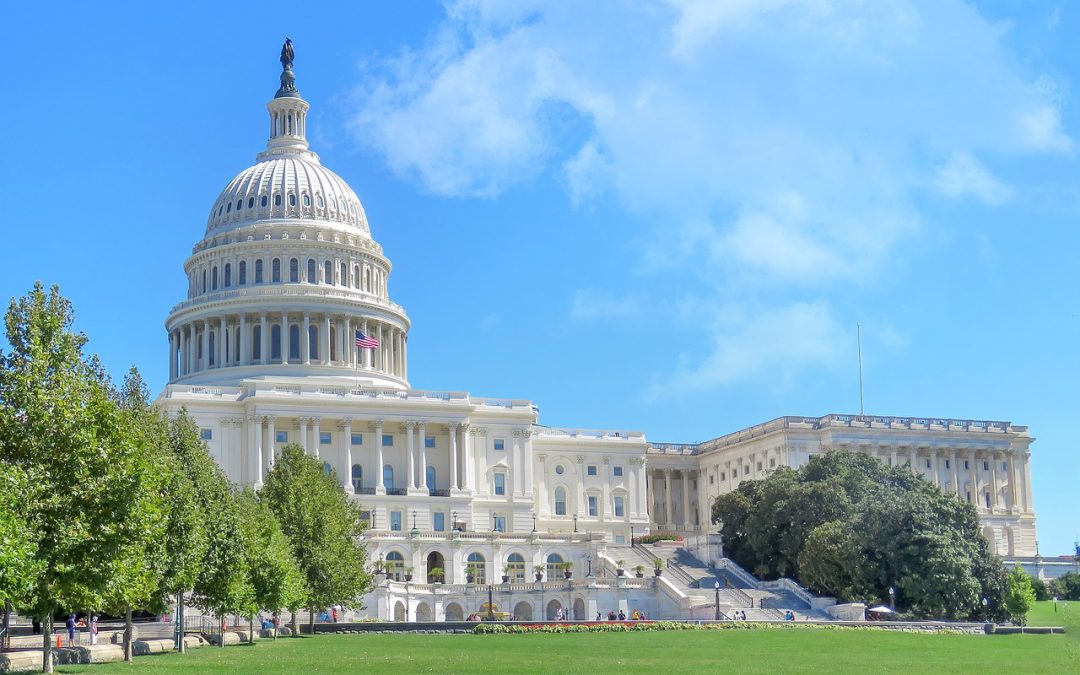Tax Tidbit
Senate Finance Committee Democrats Update Build Back Better. On Saturday afternoon, Senate Finance Committee Chair Ron Wyden (D-OR) released legislative text for the committee’s portion of the Build Back Better Act. The text includes both technical corrections and substantive changes to the House-passed version of the bill.
Since then, the Brownstein Tax Policy Team has been hard at work creating a comprehensive summary and analysis of the new text, with an emphasis on the differences between it and the House-passed version. We expect to finish that analysis within the coming days.
In the meantime, for other analysis and context on current negotiations and the prospects of the Build Back Better Act, keep reading.
Legislative Lowdown
Build Back Better: Procedural Steps Ahead. Senate Majority Leader Chuck Schumer (D-NY) on Monday stood firmly behind his goal for the Senate to vote on the Build Back Better Act before the chamber leaves for the holidays. To meet this timeline, however, the Senate must act this week or next. With each passing day, this appears less and less likely, particularly given the steps that must be taken before the package can receive a floor vote. Below is a high-level overview of those steps:
- Byrd Bath. Senate Democrats and Republicans have been meeting with the parliamentarian separately to argue for the inclusion or exclusion of various policies in the package. The debate centers around whether each provision in question complies with the Byrd Rule. These meetings have occurred over recent weeks and are ongoing, according to Schumer, who said Monday the meetings (including bipartisan meetings) will continue throughout the week.
While not many tax policies are likely to be challenged before the parliamentarian, there are some that could be: for example, a provision under discussion directing the Internal Revenue Service (IRS) to study the feasibility of the agency operating its own Free File program, and tax incentives for union-produced electric vehicles.
- Other Committee Text. The Senate Finance Committee is not the only Senate panel that will update the House-passed Build Back Better Act. The Senate Health, Education, Labor and Pensions Committee also released updated text on Saturday, and other committees are expected to update the language under their jurisdiction as well. When this will occur, however, remains unclear.
- Manager’s Amendment. Unlike the House, the Senate is bypassing committee consideration of the bill. Instead, once committees have released final text, Schumer will collect the various portions and consolidate them into a manager’s package to be placed on the floor.
- (Another) CBO Score. Because the Senate will have altered the House-passed text, the old Congressional Budget Office (CBO) score will be insufficient. As a result, Republicans are likely to demand the CBO release a new estimate to reflect the changes, which could further delay floor consideration if key senators withhold their vote until it is released.
- Senate Floor Consideration. Once all the steps discussed above are complete, the package will then be ready for floor consideration. However, before it can be approved, the text must go through another “vote-a-rama” process during which Republicans will be able to offer an unlimited number of amendments. If amendments pass, the bill text will be altered.
This all assumes that 50 Democratic senators are prepared to vote for the package—a number that has thus far eluded Schumer and the White House. Key to securing Democratic unity will be the support of a few moderate senators, such as Sen. Joe Manchin (D-WV).
It’s Joe Manchin’s World. And we are all just living in it, including Democratic leadership. The most recent example of this came on Monday afternoon when President Joe Biden spoke to Manchin about remaining issues with the Build Back Better Act.
Although the specifics of the call remain confidential, White House Press Secretary Jen Psaki previewed the discussion during her Monday press conference: “Sen. Manchin has been in touch over the course of the last several weeks closely with senior members of the White House staff, and we expect this just to be a continuation of that conversation.” She reiterated that she did not “see this as a negotiating table as much as a conversation between two people who have been in public life for some time and have had good faith discussions directly,” before adding that “this is just a continuation of that.” When asked about the timeline under which the Build Back Better Act would be considered in Congress, Psaki said the White House is “fully supportive” of Schumer’s efforts to move the bill forward before the holidays.
While that discussion was private, Manchin and the White House have engaged in a pubic negotiation over certain concerns. Two of the most pressing concerns expressed by Manchin, the overall price tag and its impact on inflation, have largely been addressed by the Biden administration.
Read the FULL “Taxation & Representation, Dec. 14, 2021” update from Brownstein Hyatt Farber Schreck.
Policy and Taxation Group is your voice in Washington on economic freedom. We advocate for policies that allow American families to fully enjoy the economic liberties and benefits of a robust free market unique to our nation. For over 25 years, we have been the loudest voice in the nation’s capital on eliminating the death tax. This ill-conceived tax has a destructive impact on families, family businesses, job creation, and the national economy.
@FamilyEnterpriseUSA @PolicyAndTaxationGroup @DitchTheEstateTax #FamilyBusiness #Business #SmallBiz #EstateTax #Deathtax #CapitalGainsTax #StepUpInBasis #Taxes #gifttax #Generationskippingtax #InheritanceTax #repealestatetax #promotefamilybusinesses #taxLegislation #AdvocatingForFamilyBusinesses #incometax #Generationallyowned #Multigenerationalbusiness

